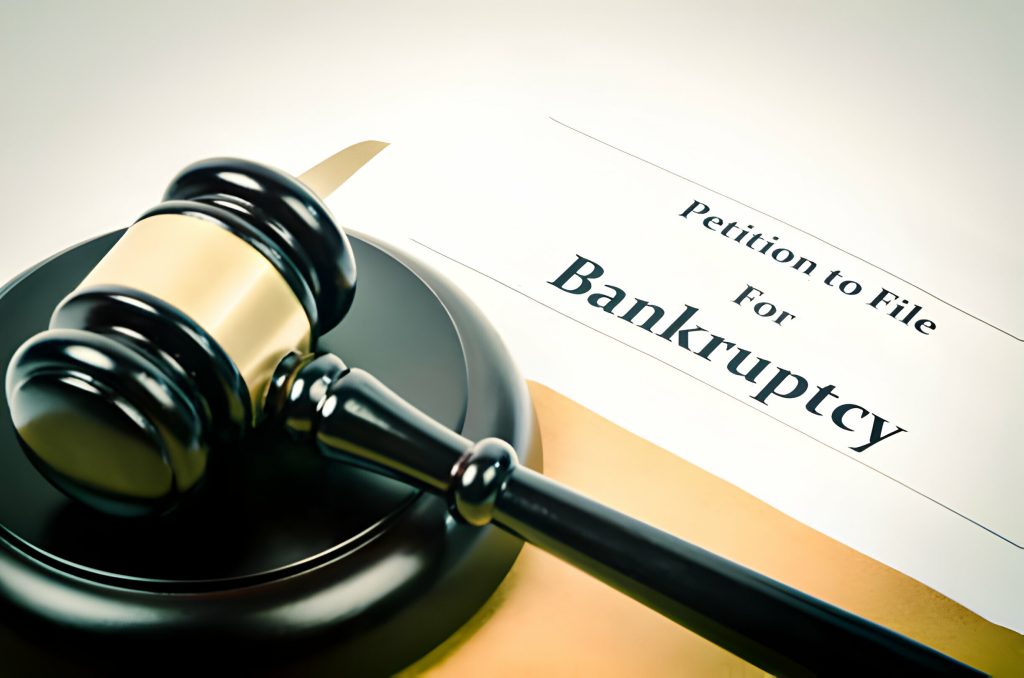Imagine yourself drowning in a sea of debt, with no lifeline in sight. The weight of financial burden is crushing, and the idea of filing for Chapter 7 bankruptcy seems impossible without any money. But fear not! This article will show you how to navigate the process of filing for Chapter 7 with no money, and even better – it will introduce you to free bankruptcy lawyers who can guide you through this challenging journey. So let’s dive in and discover the path to financial freedom, step by step.
Understanding Chapter 7 Bankruptcy and Its Benefits
You should understand the benefits of Chapter 7 bankruptcy, as it is the current subtopic being discussed in this section. Filing for Chapter 7 bankruptcy can offer you a fresh start by eliminating most of your unsecured debts. One of the advantages is that you have the option to file without an attorney, which can save you money on legal fees. If you cannot afford an attorney, there are resources available for free legal assistance, such as clinics and pro bono attorneys. Additionally, fee waivers and payment plans may be available to help cover the costs associated with filing for bankruptcy. To determine your eligibility and navigate the qualification process, it is recommended to consult with local bankruptcy lawyers who can guide you through the necessary steps.
Exploring Options for Filing Chapter 7 Without an Attorney
Exploring alternatives to hiring an attorney may be a viable option for individuals considering filing for Chapter 7 bankruptcy without legal representation. If you’re in this situation, here are three options to consider:
- Pro se bankruptcy process: This allows you to represent yourself in court and manage the entire bankruptcy process on your own. While it can be challenging, it’s possible with careful research and understanding of the bankruptcy laws.
- Online bankruptcy assistance: There are various online resources available that provide guidance, forms, and step-by-step instructions for filing Chapter 7 without an attorney. These resources can help simplify the process and ensure you meet all the necessary requirements.
- Pro bono bankruptcy lawyers: Some legal aid organizations offer pro bono services, which means they provide free or low-cost legal assistance to individuals who cannot afford an attorney. Reach out to these organizations in your area to see if they have any available resources.
Accessing Free Legal Assistance for Bankruptcy Cases
Accessing free legal assistance for bankruptcy cases can be beneficial for individuals who are unable to afford the services of a lawyer. If you are facing financial difficulties and need help with your bankruptcy filing, there are resources available to assist you. One option is to seek out free legal aid organizations or pro bono attorneys who specialize in bankruptcy cases. These professionals offer their services at no cost to low-income individuals, ensuring that everyone has access to the legal support they need during this challenging time. Additionally, many areas have bankruptcy clinics where you can receive guidance and assistance from knowledgeable professionals who understand the complexities of the process. By accessing these resources, you can obtain the necessary support without straining your budget.
Overcoming Financial Hurdles: Fee Waivers and Payment Plans
Overcoming financial hurdles in a Chapter 7 bankruptcy may involve exploring fee waivers or setting up payment plans with your attorney. Here are three important things to consider:
- Fee waiver qualifications: To qualify for a fee waiver, you need to demonstrate that you have insufficient income to pay the filing fees. This requires providing detailed financial documentation, such as pay stubs, tax returns, and bank statements.
- Payment plan options: If you don’t qualify for a fee waiver, you can still set up a payment plan with your attorney. This allows you to make affordable monthly payments towards the bankruptcy fees over time.
- Eligibility criteria: It’s crucial to meet the eligibility criteria for Chapter 7 bankruptcy, including passing the means test and completing credit counseling requirements. Consulting with an experienced bankruptcy lawyer will help ensure that you meet all necessary criteria and navigate the process successfully.
Navigating the Eligibility and Qualification Process
To navigate the eligibility and qualification process for Chapter 7 bankruptcy, you’ll need to pass a means test that compares your income to the state median. Consulting bankruptcy lawyers can provide professional advice and guidance on whether you meet the eligibility requirements. They will assess your financial situation and help you understand the importance of thorough documentation in gathering necessary financial documents for the filing. To paint a clearer picture, here is a table outlining the steps involved:
| Steps |
|---|
| Pass means test assessment |
| Consult with bankruptcy lawyers |
| Gather necessary financial documents |
| Attend credit counseling |
| File the bankruptcy petition |
Gathering the Necessary Financial Documentation
By collecting pay stubs, tax returns, bank statements, and credit card statements, you can ensure that you have all the necessary financial documents for your Chapter 7 bankruptcy filing. Here are three tips to help with document preparation and organization:
- Financial record keeping: Keep track of your financial records, including income statements and expenses. This will help you accurately assess your financial situation and determine if Chapter 7 bankruptcy is the right option for you.
- Paperwork organization: Create a system to organize your paperwork. Use folders or digital files to separate different types of documents such as pay stubs, tax returns, and bank statements. This will make it easier to locate specific information when needed.
- Record retrieval: Retrieve any missing documents that are required for your bankruptcy filing. Contact employers for pay stubs, request copies of tax returns from the IRS, and gather recent bank and credit card statements. Having all the necessary records in one place will streamline the filing process.
Completing Mandatory Credit Counseling for Chapter 7
When completing mandatory credit counseling for Chapter 7, you’ll need to be referred to an approved agency by a bankruptcy lawyer and complete the required course. The credit counseling requirements are in place to ensure that individuals considering bankruptcy understand the financial implications and explore alternatives. It is important to find approved counseling agencies that can provide the necessary guidance and education during this process. Once you have completed the counseling course, you will obtain a certificate of completion from the agency. This certificate is a crucial document that needs to be included with your bankruptcy petition. Make sure to keep a copy for yourself as well. By following these steps and fulfilling the credit counseling requirements, you will be one step closer towards successfully filing for Chapter 7 bankruptcy.
Filing the Bankruptcy Petition and Utilizing Exemptions
Once you’ve gathered all the necessary financial documents and attended credit counseling, it’s important to understand how to properly file your bankruptcy petition and utilize exemptions to protect your property. Here are three key steps to take during this process:
- Negotiating exemptions: Work with your bankruptcy lawyer to identify and negotiate exemptions that will allow you to keep certain assets, such as equity in your home, car, and personal belongings. These exemptions can help safeguard your property from being liquidated during the bankruptcy proceedings.
- Protecting property: Once you’ve determined which exemptions apply to your situation, it’s crucial to accurately list and document these protected assets in your bankruptcy petition. This ensures that they are shielded from collection activities by creditors.
- Reaffirmation agreements: If you have secured debts, such as a mortgage or car loan, consider negotiating reaffirmation agreements with creditors. These agreements allow you to keep the property securing the debt while continuing regular payments.





